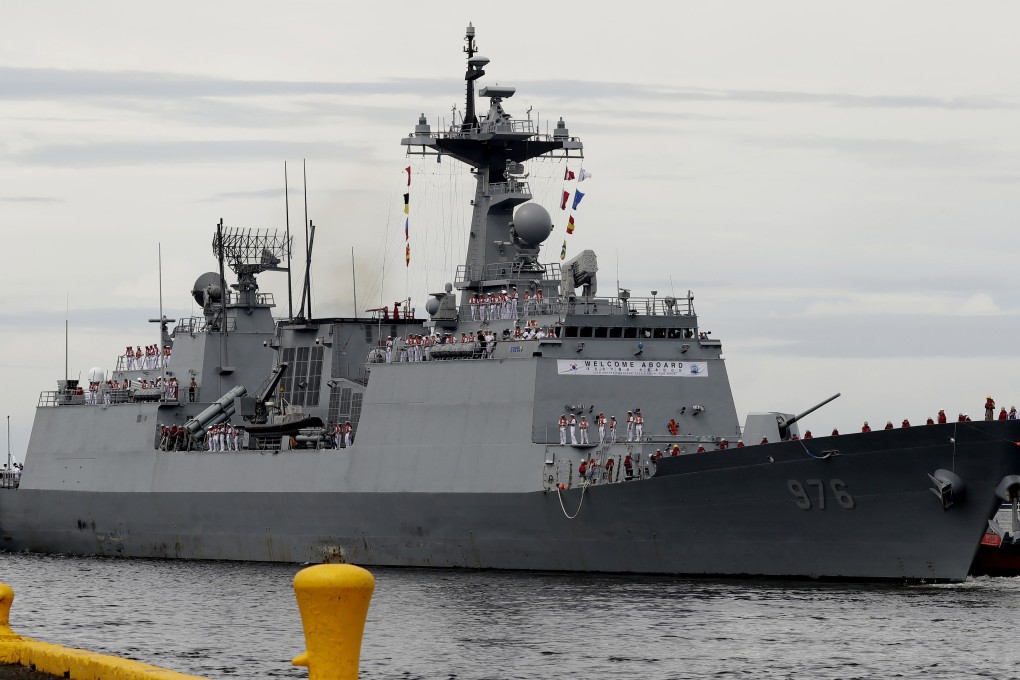Coronavirus: South Korean military confronts largest cluster on anti-piracy ship; Singapore asks unvaccinated to stay home
- Authorities on Monday said just 50 of the ship’s complement of 301 personnel have tested negative in an outbreak first reported on July 15
- Meanwhile, Australia has cancelled far-right British commentator Katie Hopkins’ visa after she boasted about flouting the country’s quarantine rules

The country’s Joint Chiefs of Staff on Monday said just 50 of the ship’s complement of 301 personnel have tested negative in an outbreak first reported on July 15. Authorities have begun an operation to airlift them home, while a replacement team will steer the vessel back home.
Sunday’s number meant new cases in South Korea, which has so far fared better than many industrialised nations in case numbers and deaths, have topped 1,100 a day for nearly two weeks in an outbreak stoked by a surge in highly transmissible Delta variant cases.
So far, South Korea has recorded 179,203 cases and 2,058 deaths. Some 31.4 per cent of its 52 million population has received at least one dose of vaccine, while 12.7 per cent have been fully vaccinated.
Helped largely by vaccinations of the elderly and the vulnerable, the latest surge in case numbers has yet to be accompanied by a significant increase in hospitalisations or deaths, with a mortality rate of 1.15 per cent and the number of severe cases at 185 as of Sunday.